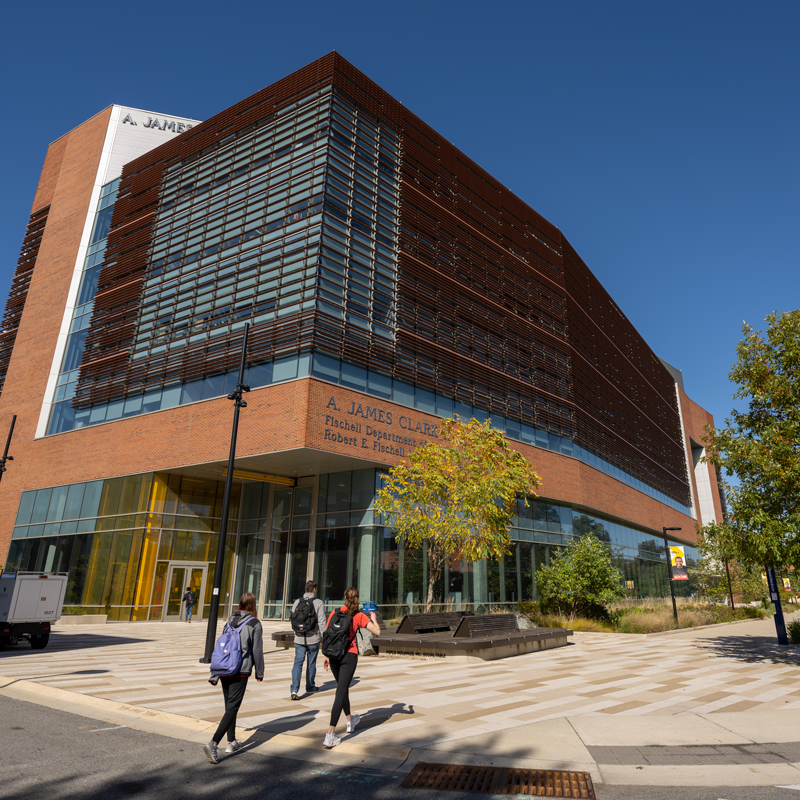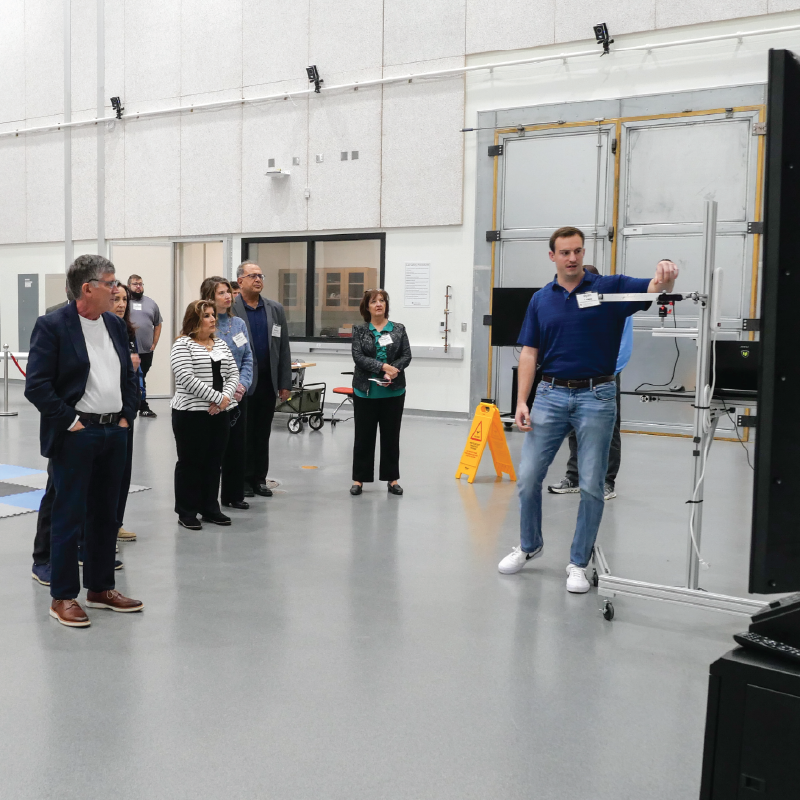News Story
AI Innovation Thrives at the University of Maryland: A New Era of Engineering Education

Artificial intelligence is transforming tech and the University of Maryland is leading the charge. Across campus, AI is driving groundbreaking research and real-world applications, from autonomous robotics and intelligent transportation systems to AI-powered medical diagnostics and climate modeling. Aimed at technical professionals, Maryland Applied Graduate Engineering (MAGE) has recently launched a cutting-edge Engineering Artificial Intelligence master’s program designed to prepare the next generation of engineers for the AI-powered future.
Debuting in Fall 2025, this program offers a robust curriculum that blends foundational knowledge in machine learning, data science, and computer vision with specialized tracks in areas such as generative AI, AI for robotics, and embedded intelligent systems. Delivered in flexible formats—online, in-person, or hybrid—it caters to working professionals and recent graduates alike. Graduates will be equipped to design intelligent systems across industries, including cybersecurity, autonomous vehicles, advanced manufacturing, and healthcare. Learn more about the program and apply here.
With the launch of the Engineering AI master’s program, MAGE invites engineers to become part of this vibrant and fast-growing AI ecosystem.
UMD’s thriving AI ecosystem extends well beyond the classroom. The newly established Artificial Intelligence Interdisciplinary Institute at Maryland (AIM) brings together over 150 faculty from engineering, computer science, public policy, and the humanities to foster ethical and inclusive AI innovation. AIM has spearheaded initiatives like AI for Good, supporting research on AI in education equity, public health, and sustainable development. Students benefit from hands-on involvement in AIM’s research labs, internships with industry partners, and participation in campus-wide AI hackathons and innovation competitions.
Maryland is home to pioneering efforts such as the Maryland Robotics Center, where researchers are building next-generation autonomous drones and swarm robotics. In partnership with NASA and the Department of Defense, faculty are developing AI systems for satellite navigation, autonomous space operations, and battlefield decision-making. Meanwhile, the Center for Machine Learning applies AI to cybersecurity, energy systems, and computational biology, offering students direct access to impactful interdisciplinary research.
With the launch of the Engineering AI master’s program, MAGE invites engineers to become part of this vibrant and fast-growing AI ecosystem. Whether you're looking to upskill, pivot into a new career, or lead innovation in your field, the University of Maryland offers the tools, community, and vision to help you succeed. Domestic applications for Fall 2025 are now open and with an inaugural application fee waiver, there's never been a better time to start your journey into the future of AI.
Published June 5, 2025











